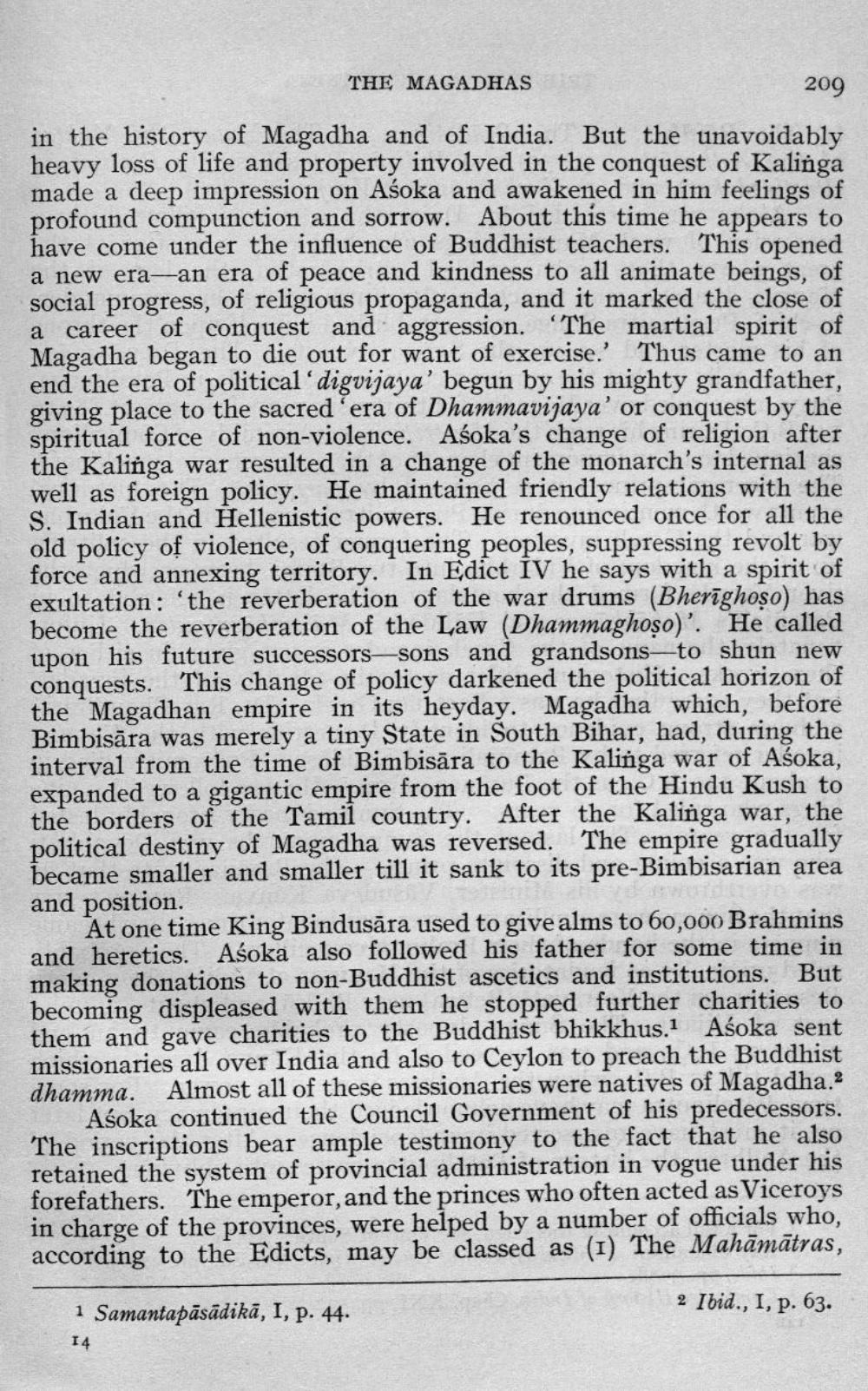________________
THE MAGADHAS
209
in the history of Magadha and of India. But the unavoidably heavy loss of life and property involved in the conquest of Kalinga made a deep impression on Aśoka and awakened in him feelings of profound compunction and sorrow. About this time he appears to have come under the influence of Buddhist teachers. This opened a new era-an era of peace and kindness to all animate beings, of social progress, of religious propaganda, and it marked the close of a career of conquest and aggression. The martial spirit of Magadha began to die out for want of exercise.' Thus came to an end the era of political digvijaya' begun by his mighty grandfather, giving place to the sacred era of Dhammavijaya' or conquest by the spiritual force of non-violence. Aśoka's change of religion after the Kalinga war resulted in a change of the monarch's internal as well as foreign policy. He maintained friendly relations with the S. Indian and Hellenistic powers. He renounced once for all the old policy of violence, of conquering peoples, suppressing revolt by force and annexing territory. In Edict IV he says with a spirit of exultation: 'the reverberation of the war drums (Bherighoso) has become the reverberation of the Law (Dhammaghoṣo)'. He called upon his future successors-sons and grandsons to shun new conquests. This change of policy darkened the political horizon of the Magadhan empire in its heyday. Magadha which, before Bimbisara was merely a tiny State in South Bihar, had, during the interval from the time of Bimbisära to the Kalinga war of Aśoka, expanded to a gigantic empire from the foot of the Hindu Kush to the borders of the Tamil country. After the Kalinga war, the political destiny of Magadha was reversed. The empire gradually became smaller and smaller till it sank to its pre-Bimbisarian area and position.
At one time King Bindusara used to give alms to 60,000 Brahmins and heretics. Aśoka also followed his father for some time in making donations to non-Buddhist ascetics and institutions. But becoming displeased with them he stopped further charities to them and gave charities to the Buddhist bhikkhus.1 Aśoka sent missionaries all over India and also to Ceylon to preach the Buddhist dhamma. Almost all of these missionaries were natives of Magadha.2 Aśoka continued the Council Government of his predecessors. The inscriptions bear ample testimony to the fact that he also retained the system of provincial administration in vogue under his forefathers. The emperor, and the princes who often acted as Viceroys in charge of the provinces, were helped by a number of officials who, according to the Edicts, may be classed as (1) The Mahāmātras,
2 Ibid., I, p. 63.
1 Samantapāsädikā, I, p. 44.
14




